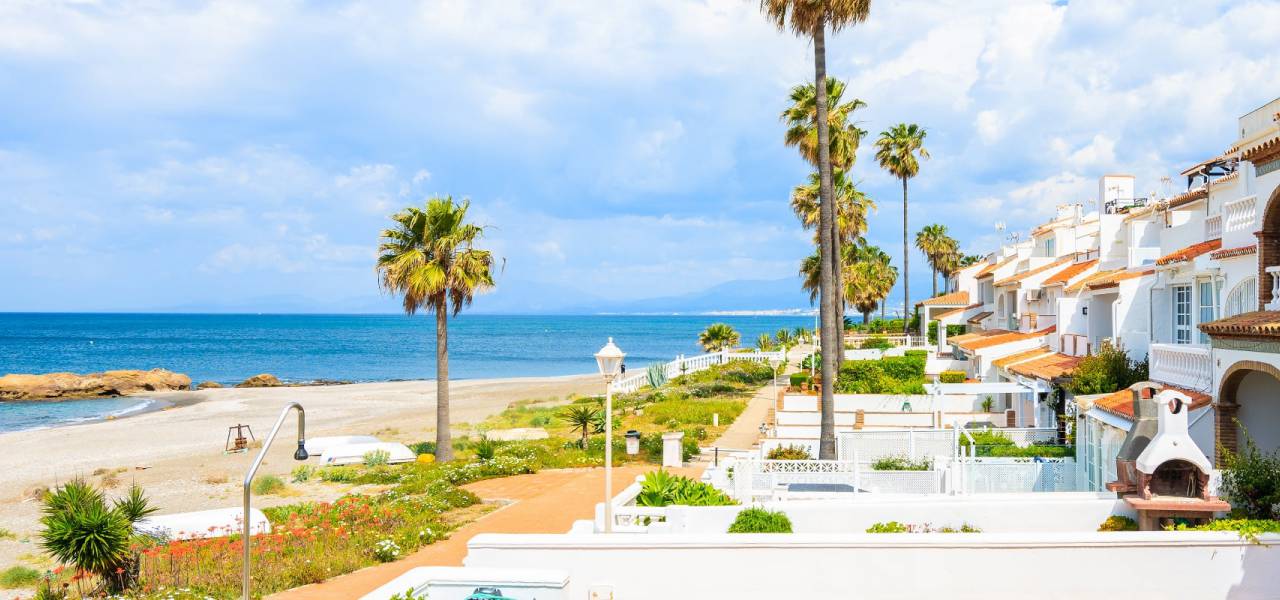Healthcare in Spain

Tony Roberts has lived in Spain since 2001. He frequently writes about his experiences in this popular expat destination and is a regular contributor to both Spanish magazine and A Place in the Sun.
Whenever we think of healthcare in a foreign land, we immediately think, will it be expensive and of the same quality as what we are used to? In fact, the quality of healthcare in Spain is excellent and many doctors and nurses speak English.
The health service is run along a two-tier system similar to that in the UK. The first tier is the National Health Service and the second is the private health care sector, which is covered by health insurance. Whether you are a native of Spain or a British citizen, if you are making social security contributions then you immediately qualify for the National Health Service. Otherwise, it is best to have some kind of private health insurance. We have personally experienced both sides of the Spanish healthcare system.
Private health care
When we first moved to Spain, we had very little experience of the lifestyle and that included provision for healthcare. As we were both reasonably healthy and because our knowledge of the language was still limited, we were somewhat scared of approaching social security offices and medical centres to gain more information, putting it off for another day.
However, with the rise in older men developing problems with their prostrate and my awareness of prostrate cancer, I decided I needed to see a doctor for a check-up. Not being eligible for the Spanish health service at the time meant I had to go private. I had this dreaded feeling that this is going to cost a fortune. Not necessarily so.
The couple that we rented our villa from in Mojacar recommended an English-speaking lady doctor in Garrucha and we found, to our surprise, that her fee was only EUR 40 per consultation. On my first visit, all my details were entered into the computer and then a comprehensive examination was done including arrangements for a blood test.
Everything was extremely thorough and the staff was very helpful -- wanting to get a full picture of my current state of health. I was given a letter indicating what blood tests were needed and directions to a nearby blood analysis clinic. At the clinic I was seen straight away and the necessary blood sample was taken. What was most impressive was that I was called back the very same day for my results. Back in England I would have had to have waited ten days. Even better, when I phoned the doctor an appointment was made for the next day.
The cost of the blood test results came to EUR 80, but they had tested for virtually everything. At my second consultation I was told that I would need to see a specialist in Almeria and an appointment was made for three days time, again very impressive and quick.
At this point I felt somewhat amazed that in less than 24 hours, I had seen a doctor, been examined, had a comprehensive blood test, seen the doctor again been reassured that I have nothing major wrong with me, and had an appointment made to see a specialist in a couple of days all for EUR 120. Fantastic.
When I saw the specialist in Almeria, Dr Francisco Gomez Berjon, he was most charming, spoke perfect English and was completely at ease with me. Once again I was given a thorough examination and a course of medication prescribed, a further appointment was made for six months, and his fee, only EUR 80. I now see Dr Francisco twice a year for a check up.
On the flip side of this, my wife, Carol, and I also had the experience of the Spanish National Health Service.
Spain National Health Service
If you have ever visited Spain, you will know that pavements either do not exist, which means you walk in the road, or are uneven and have a kerb that is about 18 inches high (how disabled people in wheelchairs get by I do not know). You will also notice that the local Spaniards always walk in the road, apparently fearless of being hit by a passing vehicle. They obviously would rather face the car than risk walking on the pavement.
Anyway, to begin our story, one Sunday morning, my wife was on her way back from the newsagent, when she tripped and fell off the pavement. Ouch! We later found out she had broken her little finger and fractured her wrist.
At the time we had just started our estate agency business and as such we had to make social security contributions which meant we qualified for free medical care. If you do not have private health insurance, you should join the Social Security system.
Once you take any job in Spain, your employer is obliged to process all the paperwork for you, pay part of your contributions and deduct the other part from your salary. If you are self-employed you will have to go to the local social security office and fill in all the paper-work yourself. Unless your knowledge of the local language is very good, then it is probably advisable to get a gestor, official agent - a bit like a lawyer for menial bureaucracy, to do this for you. Beware of using a British accountant who does not speak Spanish fluently - you may find that you have not been registered correctly.
We needed to find a hospital quickly but not ever having needed emergency medical treatment in Spain we had not a clue where the nearest hospital was. We found a place near the beach with a red cross painted on the outside of the building but were then advised that they only take private fee paying patients. Fortunately, they directed us to a health centre on the other side of town.
As opposed to my wonderful private health care experience with English-speaking staff, at this health centre, the receptionist only spoke Spanish and we had some trouble understanding each other. Fortunately for us, a doctor was passing by and kindly offered assistance. However, to our dismay we were told we had come to the wrong hospital. In fact, you are supposed to attend the hospital that is registered for the district where you live. We were then given more directions and this time found the right health centre.
We were seen straight away, only to be told that the diagnosis of a suspected broken finger needed an X-ray, but that the centre did not have an X-ray facility and we were told to go to the main general hospital in Lorca, which was 35 km away. All this time my wife behaved remarkably well even though the pain was excruciating.
As with most things in Spain, everything is located in the town centre and parking was difficult. We walked to the A & E department and, just like in England, it was very busy. After explaining our problem to the reception desk, we filled in a form, and proceeded to wait. Of course, we assumed we were going to be here for hours. Actually things were very fast and after a very short wait, Carol was examined and whisked off to X-ray. After the x-ray, we waited only another ten minutes before a doctor confirmed a broken finger and fractured wrist. Carol received the necessary treatment and an appointment was made to visit the hospital in another seven days.
Accidents happen - be prepared
In all fairness, if we had been better prepared it would not have turned into such a drama. The lesson to be learnt from this experience was that accidents do happen and you do need to be prepared. When you arrive at your final destination, register immediately with your local health centre, find the location of your local hospital, drive there and have a look around. Also, make a note of useful telephone numbers that you are likely to need in case of emergency and keep them close by a telephone.
We have put together a list of various forms and information that you may find helpful:
Form E121
If you are a pensioner from the UK, 65 for men, 60 for women, and intend to live in Spain permanently then you can get free medical care and medications under a reciprocal agreement between EU governments; you should obtain form E121 from the DSS in the UK prior to your departure. You may need a separate form for each member of your family. This form should be handed in to the Seguridad Social (Social Security) in Spain. It provides permanent health cover and does not need to be renewed. You will receive a temporary health card and eventually you will receive a letter giving the name of the medical centre you are to visit in case of illness and a permanent card. Until the form has been registered at the social security office you are not covered for healthcare. Private health clinics will not accept this form as payment.
Form E106
The E106 is for people who have moved permanently to Spain but have not reached pensionable age, its period of effectiveness depends on the state of your past National Insurance contributions record. The period of medical cover commences from the date you leave the UK. You must however apply and receive your E106 entitlement form before leaving the UK to ensure you are covered and to know what that cover entitles you to.
Form E111 (EHIC)
The best solution for someone wanting to stay in Spain for a short period of time without becoming a resident is the form E111, now replaced by the EHIC (European Health Insurance Card), this card is issued by the National health Service in the UK, and you should carry it with you together with your passport at all times, in case of an emergency. This card is only to be used in cases of emergency and is not for the treatment of chronic illnesses.
Private Health Service
If you are not covered by the Spanish social security, then it is imperative that you have private medical insurance. If you have private health insurance in the UK, then find out from the insurance company if they will pay your medical bills in Spain. There are a large number of private Spanish or English companies offering health insurance. The policies offered generally differ considerably in the extent of cover, limitations and restrictions, premiums, and choice of doctors, specialists and hospitals.
Health care points to remember when moving to Spain:
- Make sure you know where your nearest hospital is located.
- You need to go to the hospital registered in your district.
- If you are working in Spain then make sure you make social security payments in order to qualify for the Spanish National Health Service.
- Make sure you find a local gestor (official agent - a bit like a lawyer for menial bureaucracy) that can handle the social security paperwork for you.
- If you paying private healthcare insurance make sure you are aware of any limitations.
- Keep a list of useful telephone numbers of places to contact in case of emergencies.
- Try and learn some useful Spanish words, do not expect everyone to speak English.









 Back
Back


